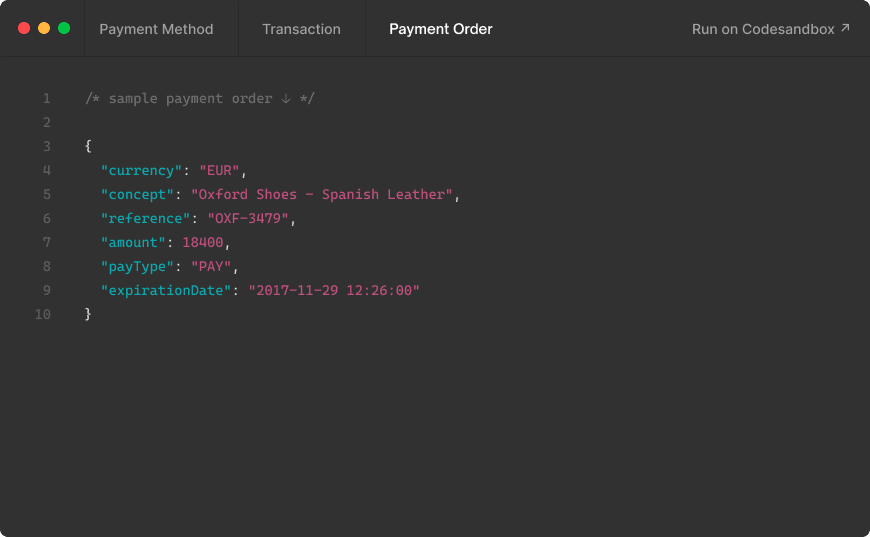PSD2 Directive: Outcomes for banks, customers, and third-parties
The new PSD2 directive will have a significant impact on the way companies provide payment solutions and other financial services.
2018 started out as challenging for retail banking. On Saturday, January 13th, the European Commission implemented PSD2 (Revised Payment Service Directive), a new set of regulations that will enable both businesses and final customers to use third-party providers for managing their finances through an open API. Under the PSD2 directive, banks will no longer be exclusive owners of the customers' account and transaction data. From now on, users will be able to share their account information with authorized third-parties, benefitting from a better online payment experience.
Why is the PSD2 directive important for the payment industry?
The new directive introduces new key players to the industry: AISP (Account Information Service Provider), or authorized service providers with access to the customers' bank account data, and PISP (Payment Initiation Service Provider) - the ones that initiate payments on the user's behalf. With these entities in mind, banks will no longer be competing exclusively between themselves, but with other financial service providers as well.
By implementing the new banking directive, the European Commission is seeking to encourage innovation, reinforce stronger customer data protection, and unify the European market for financial services. In this sense, PSD2 is an extremely important step towards merging autonomous markets into a single ecosystem, and encouraging competition in international e-commerce.
As a result, digital payments will become cheaper, faster, and significantly better protected, and companies will be able to build innovative services that will improve payment experience.
How will PSD2 affect key players?
The efforts towards developing and establishing a unified market ecosystem in Europe will affect key players differently. What will be the outcomes of the PSD2 directive implementation for banks, customers, and third-party providers?
Banks
With the implementation of the new directive, banks will no longer hold the monopoly over their customers' account information. From now on, they will have to provide an open API to third-party providers, which will open up the market for new non-bank entrants that will not need to maintain a heavy bank infrastructure.
Banks will face a significant increase in competition; as we already mentioned, the PSD2 directive will make it possible for companies to offer financial services on top of banks' infrastructure, and new entrants will have an easier access to the market. For this reason, many banks are already working on collaboration projects with FinTech companies to keep up with the latest technology tendencies. Additionally, some banks have already made their API available to other service providers.
However, banks will also benefit from these changes. By unifying the European market and establishing a harmonized legal framework, it will become cheaper for them to operate in several countries as compliance costs are reduced. On top of that, they will have better opportunities to increase their market share on an international level.
Third-party companies
The PS2D directive will provide a lot of opportunities for financial technology companies and other third-party providers. Under the new regulations, companies will be able to focus on improving the payment experience by connecting with banks' open APIs without the need to maintain the heavy bank infrastructure themselves.
As a result, it will not only be easier for third-party providers to enter the market, but also to provide technology advancements through innovation. As the European market grows, new financial services and bigger investments are expected for non-bank companies.
Additionally, e-commerce companies will be able to take money directly from the buyer's account with his consent, skipping the need for slow and expensive card transactions. In any case, the EU commission advises customers to never allow access if the company doesn't provide a secure authentication process.
Consumers
Despite the fact that there is still a long way to go until we see the real benefits of unifying the European market, consumers can expect the following benefits in the near future:
• The possibility to store and use financial data of multiple European bank accounts from a single mobile app.
• Transparency in services and prices as increased competition will make market information easily available.
• Innovative services that are faster, more personalized, accessible, and much more economic.
• Companies that are more customer-centered and undertake a digital and mobile approach to providing solutions.
• New entrants into the unified European market will provide bigger and better financial services.
• Improved payment experience that adapts to the ever-changing environment.
Undoubtedly, the new PSD2 directive will have a significant impact on the way companies provide payment solutions and other financial services. However, we should not forget that it is a long-term change that will be slowly, but steadily shaping the future of FinTech and retail banking. Exciting, isn't it?
From the blog
Stay updated with the latest news, tricks and tips for MYMOID
Evita Chargebacks: Estrategias Efectiva de devolución con MYMOID
Los chargebacks pueden causar mucho daño a tu negocio y la reputación de tu marca. ¡Averigua cómo evitarlos!
2024-08-05
¿Qué significa el estado de tu orden de pago? (MYMOID)
Conoce el esquema de órdenes de pago que te permitirá tener un mayor control sobre tus procesos internos.
2018-05-24
3D Secure 1 vs 3D Secure 2: What Are The Main Differences?
3D Secure 1 has evolved into a better, faster, and more secure version that protects all parties in an online payment transaction. In this article, we will discuss the main differences between
2022-08-22
Ready to start?
Pioonering digital payments since 2012. Trusted by +5.000 companies, startups and retail stores.

© 2024 MYMOID. All rights reserved.Legal noticePrivacy policyCookie policy